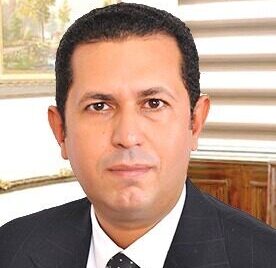Since the beginning of the Israeli war on Gaza, President Abdel Fattah El Sisi has repeatedly warned that the conflict will engulf the region, threatening its stability and security.
Indeed, 190 days after the outbreak of this war, Iran has launched drone attacks on Israel, which may respond in kind, dragging the region into a new conflict that may have serious repercussions.
These developments confirm the validity of the Egyptian leadership’s vision, which warned from the first day of the Gaza war against the consequences of expanding the circle of conflict in the region. Egypt’s vision is firm, clear, and beyond doubt, which is to work to stabilise the region and establish an independent Palestinian state through negotiations.
Egypt reaffirmed its position with the beginning of the Iranian attacks against Israel. The Egyptian Foreign Ministry issued a statement expressing its deep concern over what it described as “indications of dangerous escalation” between Tehran and Tel-Aviv, calling for the exercise of the utmost restraint to spare the region and its peoples from additional instability and tension.
The Foreign Ministry noted that the dangerous escalation between Iran and Israel is a direct result of the expansion of the scope of the war in Gaza, something Egypt warned against repeatedly in the past.
As part of Egypt’s efforts to contain the situation and restore calm to the region, Egyptian Foreign Minister Sameh Shoukry made three calls with the Iranian, Israeli, and American foreign ministers to express Cairo’s deep concern as a result of the unprecedented military escalation between Tehran and Tel Aviv, which threatens the stability of the region and jeopardises the interests of its people.
Egypt affirmed, through its Foreign Minister, its readiness to intensify its efforts in co-operation with its partners in order to defuse the current crisis. It also affirmed its firm position on a ceasefire in Gaza, facilitating the entry of humanitarian aid, rejecting any measures aimed at displacing Palestinians outside their lands, and rejecting any ground military operations in the Palestinian city of Rafah.
The expansion of the conflict due to the war on Gaza, as is happening between Iran and Israel, will not be in the interest of any party, and will bring more tension and instability to the peoples of the region.
It can be said that the Iranian attack represents the climax of the escalation with Israel in the wake of the Gaza War, and that its repercussions will extend to many files in the region. The possible escalation scenarios between the two sides during the coming period will be governed by many factors related to the calculations of the two parties and their capabilities to enter into an open military confrontation.
The current situation affirms the priority for strengthening Arab capabilities and finding a regional formula to contain the situation peacefully and confront any threats. It also stresses on the necessity of holding strategic dialogues and partnerships with regional and international powers with the aim of ensuring stability in the region, reaching a permanent ceasefire in Gaza, resorting to the voice of reason, and entering into direct and immediate negotiations to establish an independent Palestinian state.
Mohamed Fahmy is the editor-in-chief of The Egyptian Gazette and Egyptian Mail newspapers






Discussion about this post